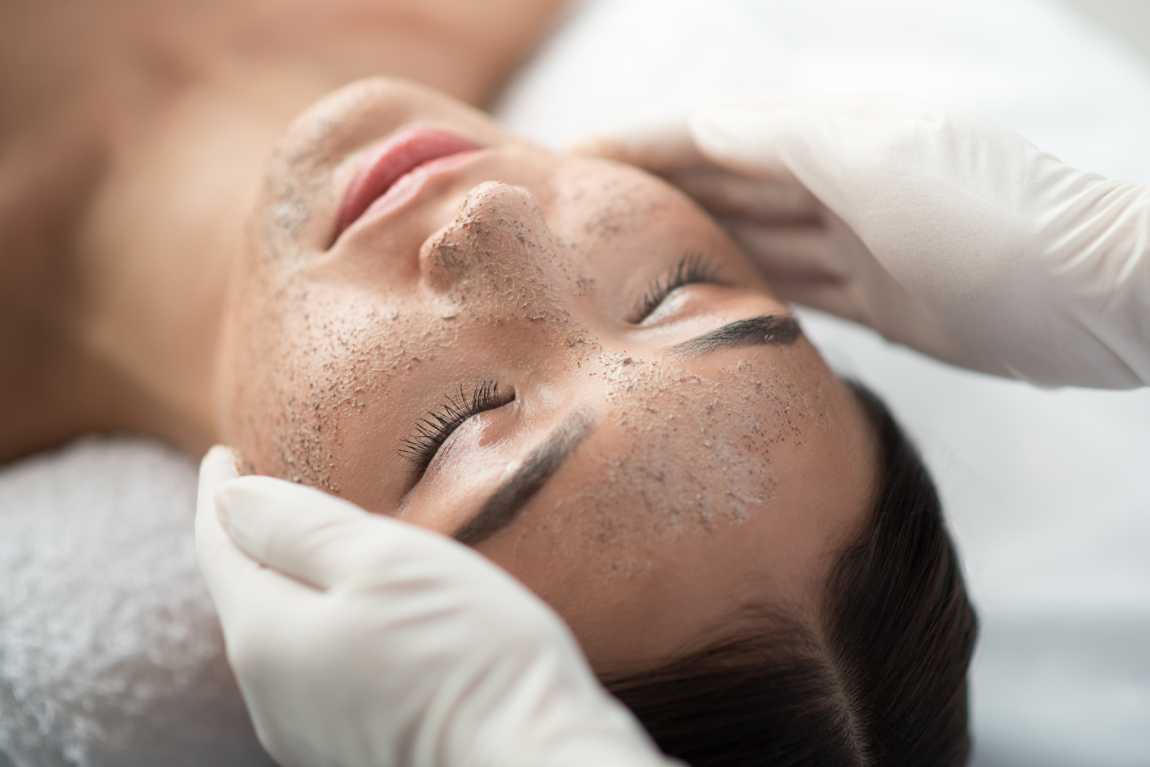
Achieving brighter, smoother, and more youthful-looking skin is a common goal for many, and one of the most effective ways to reach that goal is through exfoliation. Exfoliation, the process of removing dead skin cells from the skin’s surface, is an essential step in any skincare routine. It promotes fresh skin renewal, allowing the skin to glow and appear more vibrant. This article explores the role of exfoliation in achieving brighter skin, its benefits, and how it can be tailored to your unique skin type.
Exfoliation is a skincare process that involves sloughing off dead skin cells from the skin’s surface. As our skin naturally sheds cells over time, this process can slow down, leading to a build-up of dead skin on the surface, which can make the skin appear dull and uneven. By exfoliating regularly, you can promote skin renewal, allowing new, healthier skin cells to surface and revealing brighter and glowing skin.
There are two main types of exfoliation: physical and chemical. Physical exfoliation involves scrubbing the skin with granular materials like scrubs or brushes. Chemical exfoliation uses active ingredients such as acids to dissolve dead skin cells. Both methods can provide effective results, but they need to be chosen according to your skin’s needs, especially for sensitive skin.
Exfoliation is crucial for removing the build-up of dead skin cells, which can make the skin appear lacklustre and uneven. By exfoliating, you help reveal fresh, youthful skin beneath the surface, creating a natural glow. Additionally, exfoliation helps improve skin texture by reducing rough patches and promoting smoother skin. Regular exfoliation can also help with pigmentation issues, such as dark spots, and prevent clogged pores, which can contribute to acne.
A brightening facial treatment typically includes exfoliation to achieve a smoother, more radiant complexion. It can help reduce the appearance of hyperpigmentation and even out skin tone, leaving the skin looking brighter and healthier.
1. Improved Skin Texture
Exfoliation helps to smooth rough, uneven skin. By removing dead skin cells, the process uncovers fresh skin underneath, giving the skin a softer and more refined texture. It can reduce the appearance of fine lines, wrinkles, and rough patches, especially when combined with an anti-ageing facial.
2. Increased Collagen Production
Exfoliation boosts collagen production, an essential protein that helps maintain the skin’s firmness and elasticity. Collagen production naturally decreases with age, contributing to the formation of wrinkles and sagging skin.
3. Improved Skin Radiance
Dead skin cells can make your complexion appear dull. By exfoliating, you allow your skin to reflect light better, improving its radiance and overall glow. The brighter, more youthful-looking skin you achieve after exfoliation is often the result of encouraging skin renewal through this process.
4. Better Product Absorption
Exfoliating regularly ensures that your skin is clear of dead cells and other debris, allowing moisturisers, serums, and other skincare products to penetrate more effectively.
Not all exfoliation methods are suitable for every skin type. If you have sensitive skin, it’s important to choose a gentle exfoliation method that won’t cause irritation or damage. For those with sensitive skin, opt for chemical exfoliants such as mild AHA (alpha hydroxy acid) or BHA (beta hydroxy acid) products. These exfoliants are usually less abrasive than physical scrubs and can effectively remove dead skin cells without causing microtears in the skin. It’s important to use sunscreen when using chemical exfoliants, as they can make the skin more sensitive to the sun. Exfoliation removes the outer layer of dead skin cells, which can leave your skin more exposed and vulnerable to UV rays. This increased sensitivity can result in quicker sunburns, hyperpigmentation, or long-term damage such as premature aging and an increased risk of skin cancer. To protect your skin, apply a broad-spectrum sunscreen with SPF 30 or higher every morning, even on cloudy days.
For individuals with normal to oily skin, physical exfoliants or stronger chemical exfoliants like glycolic acid may work well. However, it’s essential to remember that over-exfoliation can damage the skin’s natural barrier, leading to irritation, sensitivity, and inflammation. Moderation is key.
Exfoliation should be incorporated into your skincare routine based on your skin’s needs. For most skin types, exfoliating two to three times a week is sufficient. However, those with sensitive skin may prefer to exfoliate once a week or opt for a gentler exfoliation treatment like an enzyme peel or mild exfoliant.
Exfoliation plays a crucial role in achieving improved skin texture and brighter skin. By regularly exfoliating, you can remove dead skin cells, improve skin texture, and enhance your skin’s radiance. Whether you choose physical or chemical exfoliation, the benefits are clear: fresher, smoother, and more luminous skin.
If you’re looking to experience the benefits of exfoliation in a professional setting, consider visiting Adonis Skincare for personalised treatments tailored to your skin’s needs. From anti-ageing facials to brightening facials, our expert team can guide you in achieving your best skin yet.
Contact us today for more information!
Get first access to our latest products, promotion & events.